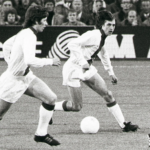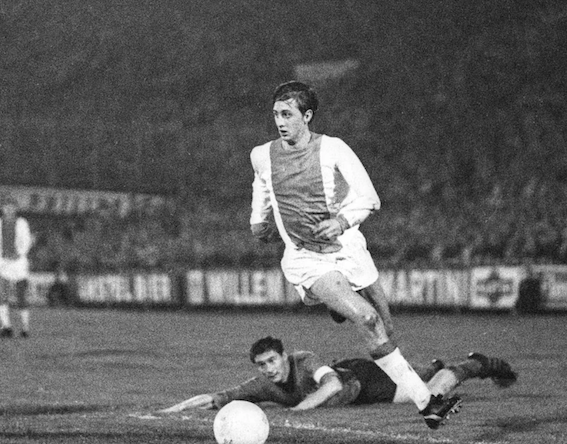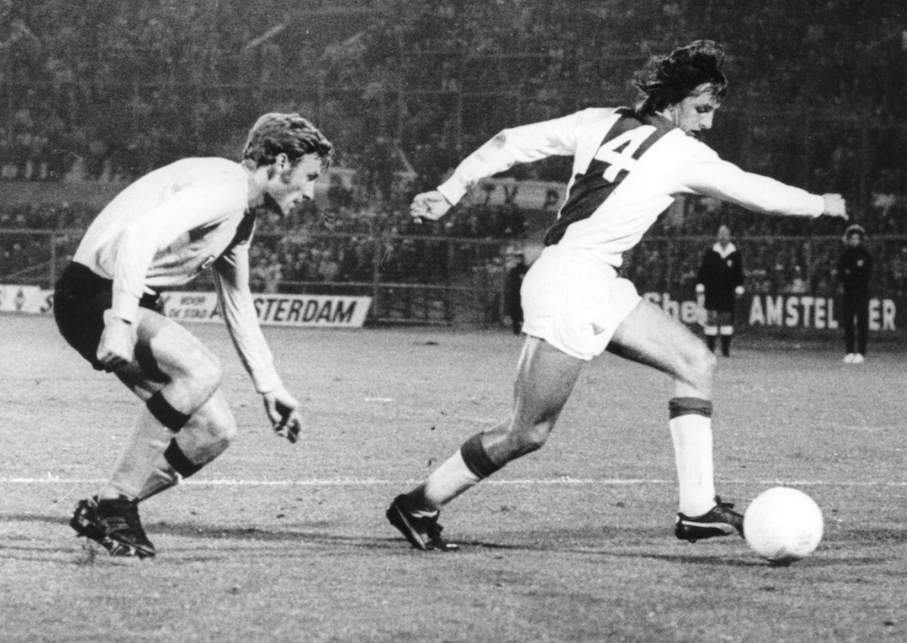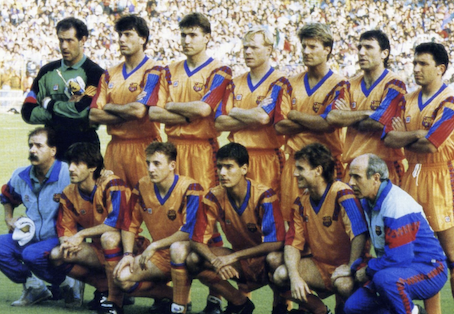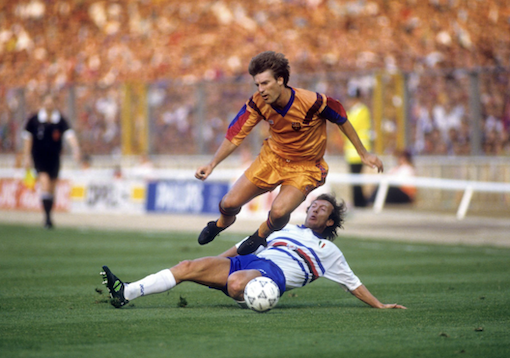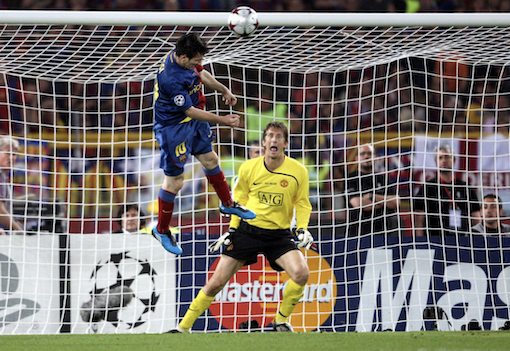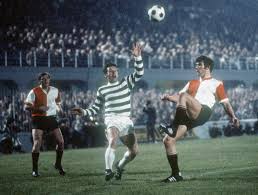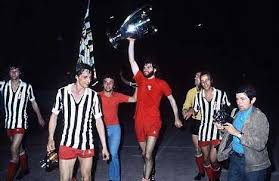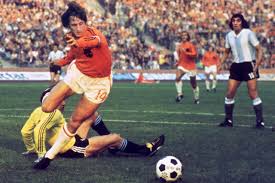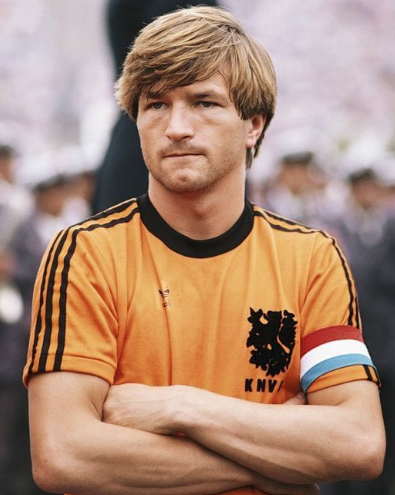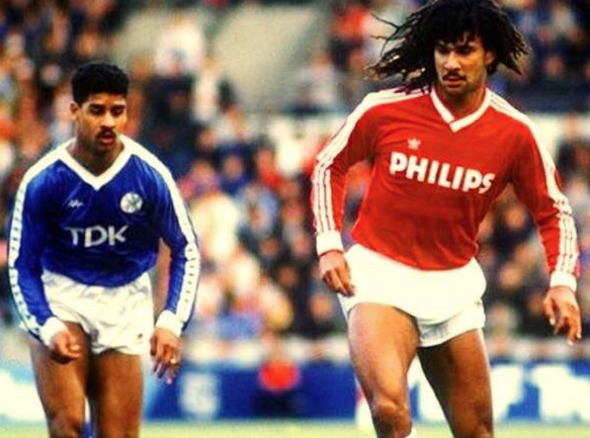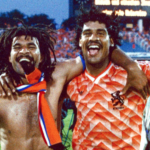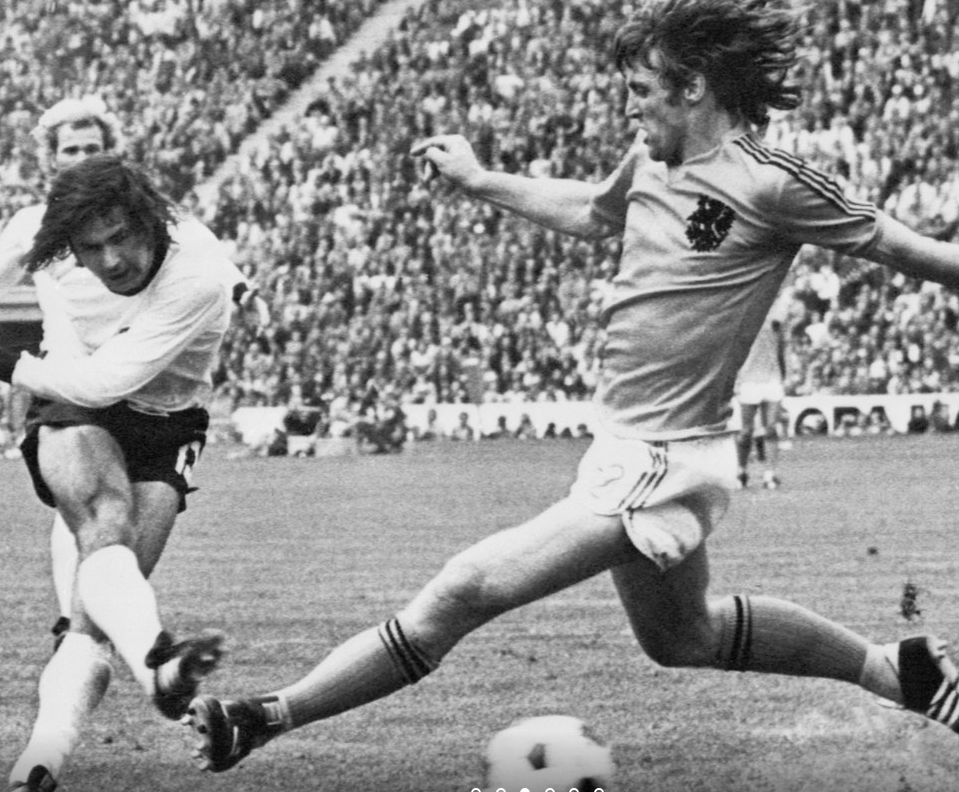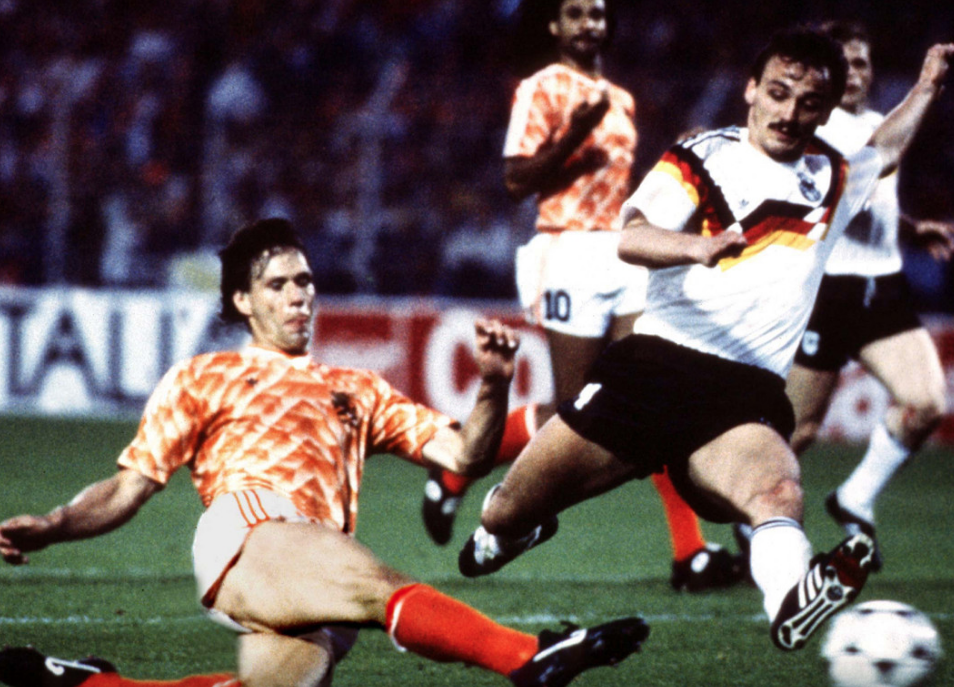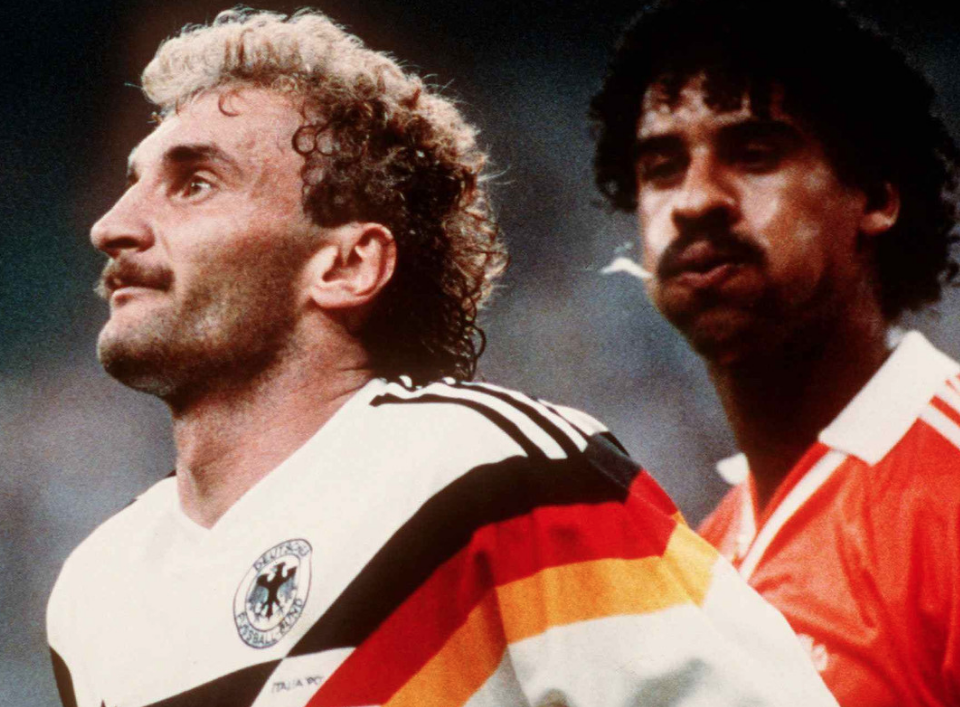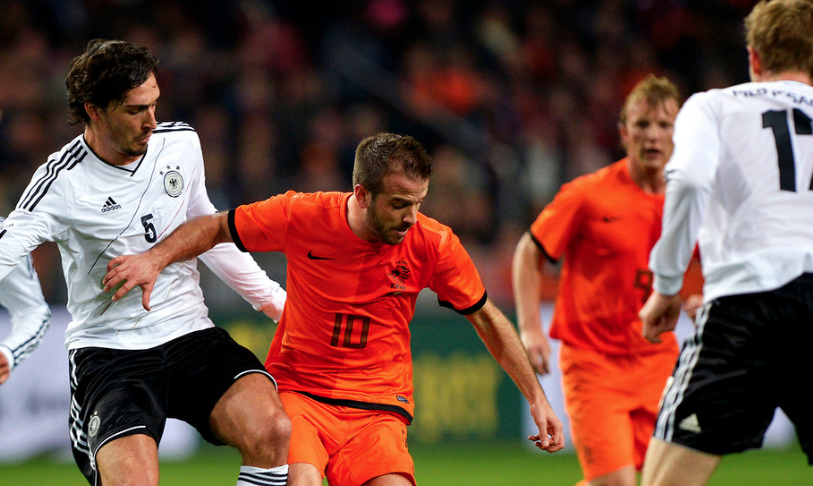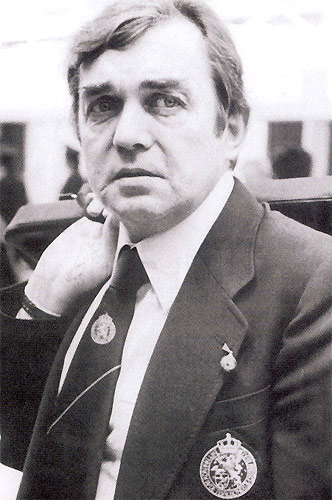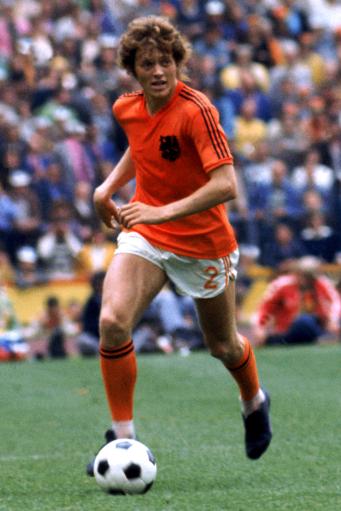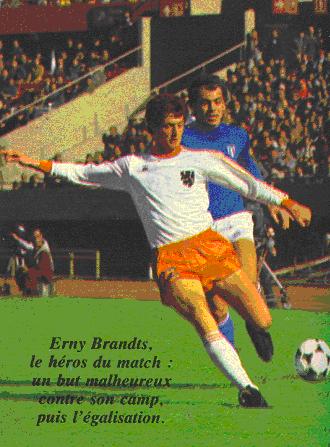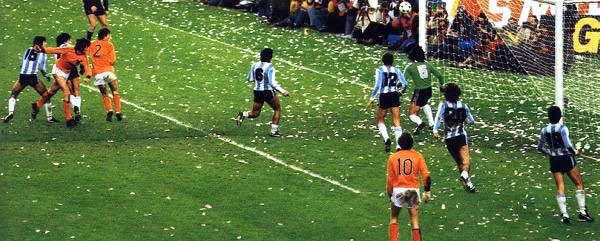H all, a personal note before I start this JC article… I will be traveling in the coming month as one of my dear family members in Europe will need support :-(. I will be posting less regularly, but will do my best to keep the good stuff coming.
May I ask you to have a look at the donation options on the site? Traveling to Europe is pretty expensive these days ;-).
JC: “You can only rotate when one position is not taken. That position needs to be the central striker.”
It was the time of Denis Law, the agile Scot who scored 237 goals for Man United. The times of the golden left of Gigi Riva, scoring one goal per match for the Italians or Der Bomber, Gerd Muller, scoring 500 goals for Bayern Munich! It was the early 70s, a great time for goal scorers. Strikers who only needed one or two touches to tap a ball in. The Dutch had a number of them: Dick van Dijk, Ruud Geels, Willy van der Kuylen, Dick Nanninga…
There were three types of strikers: the mercurial fast ones (Rene van de Kerkhof), the player with the thunder in the thighs (Willy van der Kuylen) and the tall lighthouse target man (Dick Nanninga). Ideally, you had one striker who had this all (Haaland).
And, a striker was always your most advanced man and he was judged on goals.
Cruyff came onto the field as a strange #9. He was never in the point. And he still scored goal after goal after goal. Between 1966 and 1972 he would never score less than 33 goals per season. But the real impact of JC was not as a goal getter of course. His biggest impact was the fact that as a #9, he was hardly ever to be found in that most advanced position.
Johan Cruyff led the line in a way that other players could flourish in the areas vacated by him. The two-footed dribble king was to be found everywhere else. As the playmaker, or as libero, or coming from the left. He called himself, the “playing central striker”. Cruyff’s ability to be that wandering striker made him crucial for the execution of Oranje’s Total Football. Oranje would play people off the pitch with any player able to play on any position. Right wingers became strikers, right full backs ended up as left winger and the central striker became the deep lying playmaker. It was all being done.
Finding the space was sacred. No one was playing on the position as laid out on the line up board in the dressing room! Cruyff would start in the #9 role but would immediately drift away. He went wherever he felt like it. “A little wander here, a little movement there, playing along a bit and then explode into action.”
Watching Feyenoord, Ajax and Oranje play in the early 70s is really fun. Opponents have no idea how to deal with it. Man markers would follow JC across the pitch and ended up leaving huge holes in their defence. Or they simply allowed JC the freedom of the pitch, which is never a good idea against someone with his dribbling skills.
Cruyff’s teams always dominated the ball. There were always ample players around the ball. Ajax and Oranje dominated in that middle zone, which is still sacred in football tactics. The maestro’s partnership with Rep, Rensenbrink and Neeskens in 1974 was phenomenal. These three could score at will helped by the open spaces left by Cruyff.
The legendary #14 explains it in 1977: “There are people who believe I should play in midfield. They don’t get it. The remarkable thing about our football is: everyone is on the move, always. And it starts with me. I start as a striker but leave that space, which starts the big rondo. The defenders of the opponent are now in trouble. Because we come at them from various angles. If they mark me, others will get more space. If they don’t mark me, well… bring it on. They end up always having one defender too few.”
The traditional #9 got replaced by the False 9. The traditional 9 was told: stay high up the pitch, hold on to the ball, go deep and mainly: score. The False 9 is a high playing playmaker, who is focused on the team rotation and performance.
When Cruyff quit his active career, it seemed the false 9 disappeared too. Strikers like Nanninga, of Kees Kist or Peter Houtman and later Wim Kieft brought Oranje back to the traditional 9. Only when Cruyff returned to Barcelona in 1988 was the False 9 back. The Dream Team.
In 1989, Michael Laudrup was seen as one of the most elegant players in football but it wouldn’t happen for him in Italy. He used to play left winger or #10. Stoichkov was Barca’s #9 but Cruyff put the explosive Romanian on the wing and placed Laudrup in the striker role.
Cruyff was obsessed with creating triangles, and we’re not talking about the musical version of it. With Ronald Koeman as libero, Guardiola as defensive mid, attacking midfielder Bakero and striker Laudrup he had a spine in his team which could pass themselves out of danger. Barca’s dream team resembles the Tiqui-Taca team of Guardiola decennia later.
It was Guardiola who used the best player ever ™ as the false striker in his team. The birth day of the Star of Superstar was May 9, 2009. In Pep’s first season, Barca was four points adrift from Real Madrid. On day 34, El Classico was on the program and the pressure on Guardiola was immense. Barca missed the title two seasons in a row now and the 2-2 at Valencia on the 33rd playing day added to the pressure. And so, Guardiola called Messi, the night before the game. Could Leo maybe drop in for a bit?
At 10.30 pm, the 21 year old Lionel Messi enters Pep’s office. Marti Perarnau, the author of “Pep Confidential” explains the situation as such: “The 21 year old enters and Pep shows him a video. He freezes the video and shows Messi the space on the pitch. He wants Messi to work in these spaces. He calls it “the Messi Zone”. And he tells Messi: “I want you to start from the wing, as per normal. But when I signal you, I want you to dart through the middle. And when Xavi or Iniesta have the ball, you go. Straight ahead, and you’ll be face to face with Casillas.”
Pep didn’t tell anyone about this. He only told his assistant Vilanova the day before the match. Xavi and Iniesta were told during the warming up. What followed was a master class of football, with a 2-6 win at the Bernabeu for Barca. Samuel Eto’o suddenly played on the right wing and Messi would drift in and out of the zone where the older and massive Madrid defence would be. Xavi would later comment: “Pep changed the whole plan. With Messi as false 9, with Henry and Eto’o in the half spaces, forcing the defenders to decide. Leo, Andres and I could dominate in this way. It was one of the best games in my career.”
Barca would win the the triple that year. In the CL finals v Man United, he used the same trick. Eto’o started centrally but after 10 minutes he switched with Messi, who would win the finals for Barca with a header!
For quite some time, the false 9 was ignored or even forgotten by the rest of the football world. Through the decennia we have seen amazing #9s, from Papin to Zlatan, from Van Nistelrooy to Benzema, from Lewandowski to Peter Crouch, from Raul to Shearer and from Berbatov to Henke Larsson… But in 2022, we do see shifts. The “playing central striker” would be a good moniker maybe? At Liverpool, their #9 ( Firmino) usually plays in service of the danger men on the wings (Salah and Mane). At Cheslea, Lukaku warms the bench often while wandering Havartz is often preferred. At City we see different false 9s all the time, from Phil Foden to Sterling to De Bruyne.
Cruyff was ahead of his time, as we all know. Every modern team these days, is looking for a type of Cruyff striker. A player who can let the team play better by being absent.

